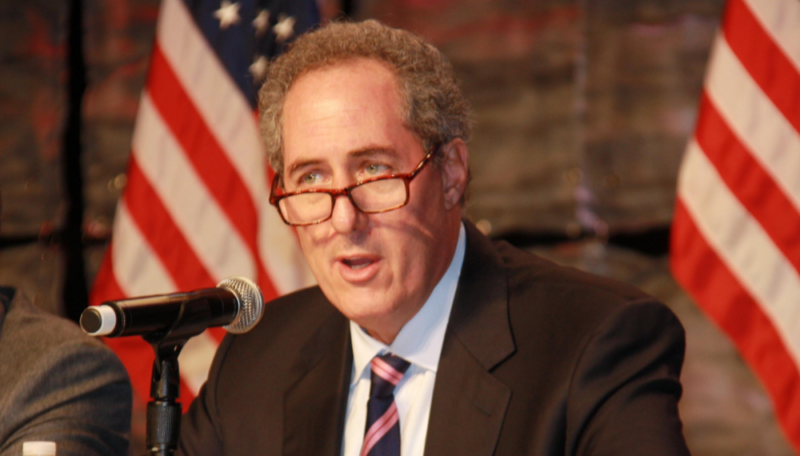Latin America Advisor
A Daily Publication of The Dialogue
Will the TPP Win Congressional Approval This Year?

U.S. Trade Representative Michael Froman on June 21 expressed optimism that Congress would approve the Trans-Pacific Partnership this year. What are the major obstacles to Congress’ passage of the TPP, and will they be overcome? How is this year’s U.S. presidential election affecting the trade accord’s chances for approval? Is the trade accord a good deal for the United States and the Latin American countries involved?
Frank R. Samolis, partner and co-chair of the International Trade Group at Squire Patton Boggs: "If implemented, the TPP agreement will cover 40 percent of global trade, setting high-standard trading rules for member countries and strengthening economic ties with the Asia-Pacific region. For the United States, Mexico, Chile, Peru and other TPP member countries, the deal will increase access to foreign markets with a growing middle class and open wide the doors to potentially lucrative foreign investment. However, the TPP has become a hot-button issue in the United States, due in large part to the upcoming presidential and congressional elections. The presumptive nominees for president from both major political parties have voiced opposition to the agreement, and the heated rhetoric is trickling down to House and Senate races as well. The timing for Congress’ vote on the agreement has been complicated by the election climate, though the TPP’s supporters are still publicly calling on Congress to vote on its implementing bill during the ‘lame duck’ session between the November elections and the start of the new Congress early in 2017. Obama administration officials are currently working to address lawmaker and stakeholder concerns with the final negotiated deal, but time is short, and some argue that lawmakers should not take such a consequential vote during a lame duck session, tying the hands of the new president and Congress on their way out the door. Moreover, as we learned from the experience with the Free Trade Area of the Americas (FTAA), not every negotiated trade agreement reaches a successful conclusion. Despite the challenges, the Obama administration will continue to push for a vote on the TPP agreement before Obama leaves office, in order to cement this key tenant of his foreign policy legacy."
Gregory J. Spak, chair of White & Case’s International Trade Group: "The congressional Republican leadership has stated that it does not intend to hold a vote on the TPP before the Nov. 8 presidential and congressional elections, which is not unusual given that Congress historically has been reluctant to consider controversial initiatives such as trade agreements during election years. Also, given that the Democratic and Republican presidential candidates oppose the TPP, securing enough votes to approve the agreement prior to the election will be difficult, as presidential candidates tend to influence the policy positions of their allies in Congress. After all, party platforms have to be negotiated in the run-up to the election. In addition to these political concerns, Republicans have raised substantive objections to certain TPP terms, and have demanded that the Obama administration resolve them before the TPP is brought to a vote. Republicans have expressed opposition to at least the following aspects of the TPP: 1.) The intellectual property chapter provides a shorter period of data protection for biologic medicines than the 12 years provided for under U.S. law; 2.) Financial service providers are not covered by the TPP’s prohibition on data localization measures; and 3.) Parties are allowed to deny the benefits of investor-state dispute settlement with respect to claims challenging tobacco control measures. These substantive and political obstacles are unlikely to be overcome in time for the TPP to receive a vote before the 2016 elections. Though Congress could approve the TPP during the ‘lame duck’ session between the November elections and the start of 2017, this scenario appears increasingly unlikely given the time constraints, the controversial nature of the agreement and the opposition of both presidential candidates. Characterizing any trade agreement as ‘good’ or ‘bad’ is risky business. The TPP is a complex agreement which will have positive and negative effects on many sectors across the member nations, and also within and among non-members. Having said that, independent analyses of the TPP suggest that the accord will have a net positive impact on the economies of the United States, Chile, Peru and Mexico. These analyses suggest that the TPP, if implemented, would be mutually beneficial to the United States and the Latin American countries involved."
Luis De la Calle, senior advisor at Hill & Knowlton in Mexico: "The window of opportunity for President Barack Obama to get the TPP through Congress is not very large, either in terms of timing or votes. In the midst of a brutal campaign, it is highly unlikely that Congress will consider the bill before Election Day in November. That leaves Mr. Obama with a lame-duck vote as the only possible strategy if he wants the TPP to be part of his legacy. The problem is, of course, that Secretary Hillary Clinton is on the record opposing a lame-duck vote in November, and that the timing is controlled by Republicans in Congress. The only ray of hope is perhaps that in the challenge that the Brexit and Trump represent to 70 years of U.S. bipartisan engagement with the world through a trade-opening agenda, the president, Republican leaders and Hillary Clinton will step up to the plate and work for the approval of the TPP as a way of rejecting the nativist (or populist) proposals that can do so much damage to the economy, to international relations, national security and the standing of the United States. A similar argument applies for making progress on TTIP. But do not hold your breath."
The Latin America Advisor features Q&A from leaders in politics, economics, and finance every business day. It is available to members of the Dialogue's Corporate Program and others by subscription.



















